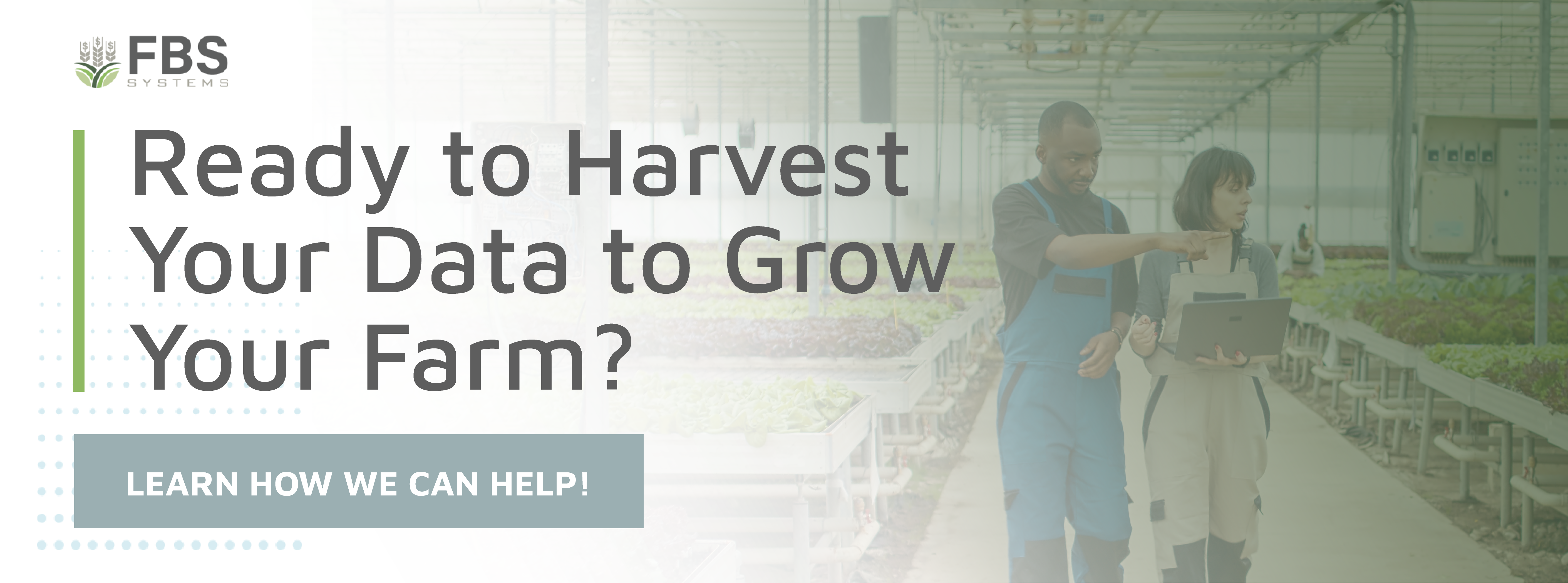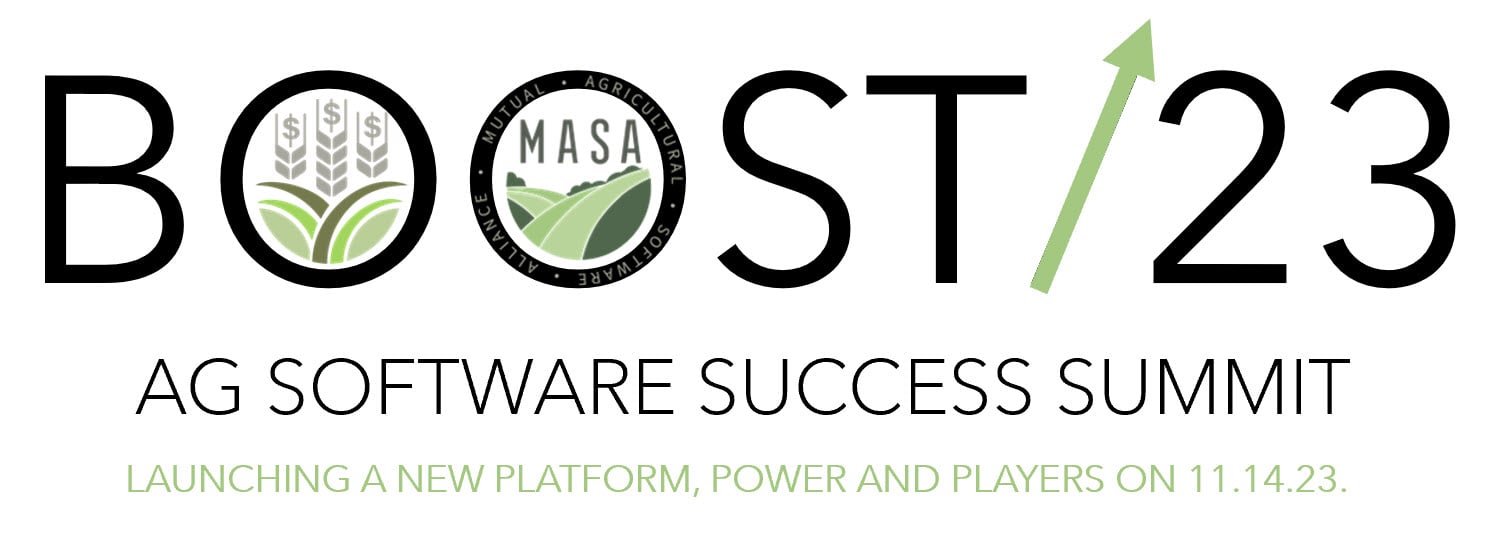Have you been struggling to assemble accounting documents for your farm? With such large enterprises and a range of inventory, assets, and employees to keep track of, farm accounting mistakes have become fairly common. Additionally, farmers aren’t always knowledgeable in accounting best practices, but it’s still their duty to compile and submit the right financial reports each period.
Even though accounting principles might not be your area of expertise, it’s important to be mindful of some of the common accounting mistakes that farmers tend to make. Luckily, farm tech and management tools help ease some of the reporting pains you might be experiencing. Let’s take a closer look at a few common farm accounting mistakes that you should avoid.
Quick Links
- How Are You Conducting Your Farm Accounting Reporting?
- Avoid These 4 Farm Accounting Mistakes
- Effectively Manage Your Accounting Records with FBS

How Are You Conducting Your Farm Accounting Reporting?
Before the technological boom we’re currently experiencing, all financial reporting was conducted manually. Tracking was completed using spreadsheets and information was shared through the mail. This was sufficient for a long time, but as new technologies were introduced to the agricultural industry, those who were unable to keep up with the new tools and processes found themselves falling behind.
Now, farm management tools allow operators to pull data from multiple enterprises and view them on a single platform. Data which is updated in real-time is also much more accurate than what was previously collected through spreadsheets. Additionally, this technology reduces the risk of human error so farmers can effectively rely on these tools to show them relevant and accurate information.
Even though farm management tools make compiling and gathering data quite simple, farmers still need to adequately produce financial reports and make a plan to file them. To address some of the shortcomings faced by farmers completing their accounting needs, the Farm Financial Standards Council (FFSC) has created guidelines to help operators consistently compile accurate reports. Nevertheless, farmers still overlook some of the reporting processes or benefits that come with thorough accounting practices.
Avoid These 4 Farm Accounting Mistakes
Farmers are focused on running their operations, and sometimes this means accounting practices can take a back seat to other priorities. Here we’ve identified a few of the common farm accounting mistakes that can be easily avoided with proper accounting practices.
Waiting Too Long
When working in the agriculture industry, it seems like there’s never any time to breathe. When it’s time to gather your financial reports and file your taxes, it might feel like another line added to your already lengthy to-do list. However, putting off your financial reporting will only reduce the time you need to gather the data, resulting in sloppy work or inability to meet deadlines.
Instead, plan ahead. Make sure you have already scheduled meetings with your accountant or advisor well before any deadlines begin to loom. This will also help you determine if there are any major year-end purchases that need to be made or final changes to your budget. Farm accounting and management tools can help farmers keep track of their inventory, performance metrics, and balance sheets while generating reports as needed. This kind of ag software can help farmers stay on top of deadlines and eliminate the “crunch time” stress they may experience when scrambling to gather data.
Misreporting
The average tax preparer might not understand the nuances of farm accounting. Some things they think are depreciable in one setting are not also depreciable in the agriculture business. Successful Farming magazine shares a story of a farmer who received an IRS audit showing a $135,000 loss on their new cattle enterprise. The article goes on to discuss how the farmer had purchased a herd of cattle for breeding, but the tax preparer “wrote all of them off in the year of purchase as a regular expense, like supplies,” rather than depreciable assets.
Instances like this happen all the time because there are many tax preparers who are not familiar with some of the unique accounting factors that come from “supplies” which are not used the same way as other industries. When conducting your regular financial reporting, it’s important to adhere to the guidelines established by the FFSC or work with an accountant who is well versed in farm accounting specifically.
Missing Records
To someone who is new to agriculture, the idea of farm accounting and financial reporting can easily become overwhelming. To gather these reports and file them, let alone know what needs to be included, hasn’t always been black and white. Fortunately, the FFSC recognizes there are areas where farm accounting methods deviate from standard accounting procedures. To address this, the FFSC has provided guidance to ensure that farmers know what information is needed and how to gather it properly.
Farms are large operations that encompass small details that can easily be forgotten about when conducting regular reports. Did you drive a personal vehicle for farm work? Do you have records of the destination, miles traveled, and purpose of that drive? Some of this might be eligible for tax deductions, but many farmers fail to track these details. The IRS has assembled a Farmer’s Tax Guide to clarify this information.

Not Making the Most of Available Tools
There are many tax benefits available, but sadly, too many people are overlooking them. The United States Department of Agriculture (USDA) has outlined programs which create taxable payments for farmers, including crop disaster payments and additional assistance for borrowers under the Inflation Reduction Act (IRA).
Did you know that one third of farmers in the U.S. are 65 or older? This indicates that a substantial number of farmers are not retiring very early. In addition to support for their business, farmers can reap long-term benefits for their personal well-being through retirement benefits. Retirement benefits are just one example of the many accounting tools that farmers are failing to utilize. In addition to standard retirement contributions, like IRAs, farm owners can prepare to shift their operations to new ownership while still issuing retirement income.
Wages from regular farm work can also be covered by Social Security, if you don’t have enough money saved for retirement. According to the Social Security Administration (SSA), wages from employee work on a farm are covered by social security if employees are “paid $150 or more in cash wages during the calendar year for farm work,” or they are “paid less than $150 in cash wages, but [the] employer reports total expenses for agricultural labor to the IRS of $2,500 or more for the year.” Failing to account for this benefit may be a drawback for your team in the future.
Effectively Manage Your Accounting Records with FBS
Streamlined reporting will not only save you time when it comes to gathering accounting data, but it will also ease the entire reporting process. On top of that, accurate and consistent reporting will supply the information you need to make informed decisions for your business. Accurate financial reporting might indicate that you have enough money in your budget to hire more employees or upgrade some of your equipment. Alternatively, you might discover areas within your spending where you need to cut back, such as equipment and labor that are not being efficiently utilized.
FBS Systems has a lineup of farm management software tools that can ease some of the struggles that farmers face when compiling their accounting records. Now, farm operators can easily track and generate financial documents, helping to reduce some of the farm accounting mistakes that we’ve discussed. To learn more about our products and how they can streamline your bookkeeping needs, get in touch with FBS today!
















